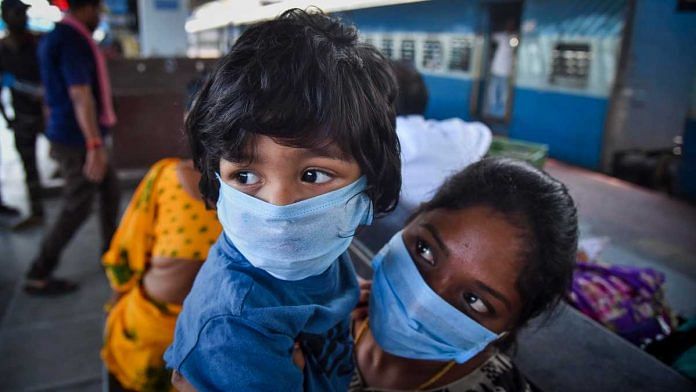 A different fight-back
A different fight-back
C. Raja Mohan | The writer is director, Institute of South Asian Studies, National University of Singapore
The Indian Express
Mohan argues that “across the world, policymakers see a growing role for technology in identification, tracking, and treating the coronavirus.” He argues that “for the small tech startups in related areas, this is a moment to shine” and “for the large tech companies, this is a huge opportunity to deploy their immense capabilities to resolve the specific problems posed by the spread of the coronavirus”. Mohan reminds that during the Second World War, “Science and the state got together to move nuclear physics from the lab to the battlefield” and similar advancements in artificial intelligence and machine learning may happen this time.
 Governments need to move fast if we’re to stop the coronavirus
Governments need to move fast if we’re to stop the coronavirus
Sudipto Mundle | Distinguished fellow at the National Council of Applied Economic Research
Mint
Mundle warns that the next 15-30 days will determine if COVID-19 infections in India will grow exponentially. This will depend on whether India moves from the current phase of “international travel-related transmission (direct or indirect) to local community transmission”, which could thereby put pressure on healthcare systems. He points out that India’s strategy given limited testing could still run the risk of community transmission cases “slipping through undetected”.
 Also step back, strategise, build
Also step back, strategise, build
Amitabh Kant | CEO, NITI Aayog
Arnab Kumar | Programme director, NITI Aayog
The Economic Times
Kant and Kumar call COVID-19 the “black swan of 2020s” but mention four ways it provides an “opportunity to evaluate the status quo”. First, the outbreak has called for the need for better quality medical and virtual doctors. Second, it calls for a “massive push to ePharmacies” and third, active pharmaceutical ingredients (APIs) manufacturing. They also mention that since the outbreak has affected supply chains from China, India needs to focus on “production-linked incentive for mobile manufacturing”.
 Use the Covid crisis to spur systemic changes
Use the Covid crisis to spur systemic changes
Govind Sankaranarayanan | Writer is former COO and CFO at Tata Capital, is currently vice chairman at ESG Fund ECube Investment Advisors
Hindustan Times
Sankaranarayanan says the coronavirus presents an opportunity to India in terms of trade and it should not let it go waste. He argues that “some Indian manufacturers should be able to benefit from these shifts in supply chains” and with the right policies, India could boost its position in the global supply chain. He argues that previous crises “have been followed by substantial surges in pent-up demand, enabling either the emergence of new players or new technologies” and there is a hope that it will happen again this time.
 The double whammy that India’s economy now faces
The double whammy that India’s economy now faces
Sonal Varma | Chief Economist, India and Asia, ex-Japan, Nomura Holdings
Mint
Varma says India is currently facing “dual shocks: Covid-19 and a financial one”. How long these shocks will last depend on how India contains infections and how well it prevents spillover effects on corporate balance sheets…and the labour market”. Given India’s “domestic financial sector risks”, weak growth and financial stability that have been brewing for a while, “real” economic activity could take a hit, which therefore calls for “close vigilance of credit risks and the prioritising of financial stability”, she writes.
 Protecting India
Protecting India
Ban Ki-Moon | The writer is the deputy chair of The Elders and served as the eighth secretary-general of the United Nations
The Indian Express
Moon says he is “deeply concerned that Gandhi’s vision is now threatened by sectarian violence and divisive political rhetoric.” He comments on the CAA and NRC and says they “appear to be incompatible with Article 14 of India’s Constitution, which clearly states that all citizens are equal before the law”. He argues that “it is only through free, unified and collective mobilisation that India can achieve lasting peace, justice and prosperity”
No victors in global war over oil prices
Bhamy V. Shenoy | Former manager, Conoco, and former board member of the national oil company of Georgia
The Financial Express
Shenoy observes that three out of the four major global oil-price wars since the formation of OPEC in 1960 have been “initiated by Saudi Arabia”. However, the coronavirus outbreak caused disagreements among Russia and other OPEC members on production cuts that led to a “dramatic increase in oil supply” and “a drastic decrease in its demand”, he explains. In the short-term this may be a boon for oil importing countries like India but prices may “overshoot” once oil demand picks up again, adds Chenoy.
 Judicious activism, not judicial activism
Judicious activism, not judicial activism
Ameen Jauhar | Senior resident fellow, Vidhi Centre for Policy and Research
Financial Express
Jauhar argues that “overzealous” judicial activism can be a roadblock to a booming economy. In India, this depends on the powers of judicial review and intervention, especially with injunctive orders, he explains. Investors encounter “delays and procedural breakdowns, and lack of adequate remedy or proper enforceability of a judicial decree” and also there is no mechanism or legislation that properly addresses “adjudication of disputes pertaining to vital infrastructure development projects”, he writes.
Today’s Editorials
Hindustan Times: HT states that political unity in the times of coronavirus is an important precondition. The Opposition has the right to ask questions to the government and even the government is duty-bound to explain its plans, but it must not turn into political contestation. It warns that the ruling establishment must refrain from self-congratulatory messages and the Opposition must not pat itself on the back for having warned about the crisis.
The Indian Express: The coronavirus crisis has sharply outlined the digital divide and differential access, argues Express. Many people in informal sectors and production lines do not have the luxury to work from home, while many who don’t have access to clean water cannot frequently wash their hands. Thus, this makes a strong case for the Internet as a fundamental and essential right.
The Times of India: The government must pursue a legislative route to save the telecom sector from the adjusted gross revenue (AGR) disaster, writes TOI. The telecom sector’s salience has been reaffirmed by the ongoing Covid-19 outbreak, which has prompted social distancing measures including companies asking employees to work from home. The government should also review the penalties and interest levied on AGR dues since 2003 when litigation commenced, it suggests.
(With inputs by Unnati Sharma)



